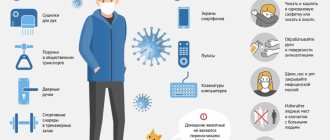The phenomenon of waking up at 3 a.m. is not that rare, experts say. At the same time, it naturally attracts attention from the medical community. After all, despite the fact that waking up at 3 o’clock is not fatally dangerous, it does not cause death, it can still be harmful to health, and also signals that the human nervous system cannot relax. Aleksey Melekhin, candidate of psychological sciences, psychoanalyst, somnologist, clinical psychologist of the highest category, associate professor, told AiF.ru about why the phenomenon of waking up at 3 a.m. occurs and what it is fraught with, as well as how to deal with it .
Psychological reasons
“This phenomenon of waking up at 2-3 am is very interesting. After all, in fact, people wake up at the same time for no apparent reason. They do not understand what is happening to them and are looking for reasons. Sometimes they even go as far as mythological and mythical options for explaining the problem. In fact, nothing like that happens there - there is no need to look for any hidden meanings; even biological reasons do not always provoke such a situation,” notes Alexey Melekhin.
Sleep, but don't get enough sleep. What prevents you from fully resting? More details
Consequences of insomnia
Before taking action, it is important to assess the scale of the disaster. Lack of quality sleep and the slightest disturbance lasting from a week to 10 days is not a reason to panic. The episodic nature of disorders of varying sleep duration occurs in everyone. But serious disorders that torment for months become chronic and have consequences.
- Problems concentrating,
- Difficulties with remembering and learning,
- Decreased performance
- Apathy or obsessiveness
- Development of depressive states
- Loss of interest in life
- Irritability and aggression
- Manifestation of somatic diseases
- Chronic fatigue
- Arterial pressure
- Headache
- Disorders of the cardiovascular system
- Excess weight
- Edema
- Deterioration in skin quality and overall appearance
And this is only a small part of the consequences of insomnia, which can be avoided by starting insomnia therapy or its prevention in time. The best remedies for insomnia
Problem solving
One of the reasons why this phenomenon occurs is the problem-oriented personality type of a person. Such people, says the psychoanalyst, constantly solve various problems - just give them free rein, and they will solve them endlessly. So why do they wake up at 3 am? “The fact is that it is at 3 am that the synthesis of hormones occurs - melatonin (sleep hormone), serotonin and cortisol (stress hormone). And people who constantly solve various problems and save the world, plan and doubt, and so during the day there is an active production of these hormones, and at night it intensifies further, as a result of which they begin to have problems sleeping and they wake up,” says Alexey Melekhin.
Such people can wake up in different ways. For example, waking up can be calm, but often they are simply thrown out of sleep.
Often this problem arises against the backdrop of an important event that will happen tomorrow. “A person marks the day as important, for example, he will have an important meeting, a trip, etc. He needs to do everything and not forget anything. Psychologists even coined the term “anticipation anxiety” against this background. Against this background, the nervous system loses basic trust, begins to overestimate the day, and sensitive sleep appears,” says Melekhin.
Sleeping pills, dietary supplements, therapy? What will drive away insomnia Read more
Will sleeping pills help?
The medical opinion on this matter is clear: long-term use of sleeping pills is harmful to health. Many sleep aids have two unpleasant effects. The first is the formation of dependence. As a result, the patient’s sleep mechanism malfunctions and, in the absence of sleeping pills, does not work at all.
Second adverse effect: medications with sleeping pills are addictive. Because of this effect, it is necessary to regularly increase the dose of the drug. However, large doses can potentially cause the heart to slow down.
Taking medications should be limited to 2 weeks
It turns out that sleeping pills, including over-the-counter ones, should be regarded as a means of prompt assistance in some cases of insomnia. You need to drink them in a minimal dosage and not for long.
Which products are safe?
Herbal-based sleeping pills are harmless:
- motherwort;
- valerian roots;
- hawthorn.
The drug Melaxen, which enhances the synthesis of melatonin when its production is deficient, has now gained great popularity. However, you need to remember that melatonin does not give an immediate sleeping effect, but normalizes biorhythms - if going to bed occurs at the same time every day.
Sometimes insomnia is caused by a lack of the trace element magnesium in the body. Therefore, vitamins containing the element should be included in a set of measures to combat normal sleep.
Problem since childhood
The situation can also develop when a person has been exposed to it since childhood. You can ask your parents how he slept when he was little. If some similar difficulties were observed there, then they will carry over into adulthood.
The disease of progress. Unobvious causes of insomnia and how to cope with them Read more
EASTERN MEDICINE: “LOOK AT THE TIME OF AWAKENING AT NIGHT”
According to traditional Chinese medicine, the human body is permeated by 12 interconnected channels. The energy of qi and blood moves through them, and yin and yang spread. Each channel (meridian) is responsible for a specific organ and is projected onto the surface of the body. The disease occurs when the correct movement of the vital energy qi is disrupted or when the energies of yin and yang are imbalanced (they must be in balance). Chinese doctors pay attention to the time of night awakenings, linking them with signals from damaged organs. The emotions that a person experiences when waking up also help decipher body signals.
23:00-1:00 – gallbladder time
Associated with it is the emotion of disappointment. Insomnia or waking up with a feeling of anxiety around midnight indicate diseases of this organ, but in themselves they can negatively affect its condition. Midnight, according to Eastern medicine, is the time of recovery of the gallbladder.
1:00-3:00 – liver
Liver diseases generate anger, but at this time anger itself can harm even a healthy organ. To calm down emotions, Chinese doctors advise doing a short relaxation practice using qigong complexes and drinking cool water.
3:00-5:00 – light
Lung disease is accompanied by the emotion of sadness. Waking up at this time is a signal to improve your respiratory system, quit smoking, start swimming or perform breathing practices.
Chinese doctors often use reflexology (acupuncture, acupressure, etc.) among treatment methods. After all, each meridian has a projection onto the body and its own active points. Relaxing massage, stone therapy and taking herbal remedies also give good results.
What does waking up in the night look like?
It would seem that he woke up and woke up. But waking up at 3 a.m. is not always quiet and peaceful. “Pushing out of sleep is often accompanied by the discomfort of horror. A person experiences a rapid heartbeat, shortness of breath, hot and cold flashes, and he wants to move,” says Alexey Melekhin.
As the specialist notes, a fear of the night, a panic attack at night, is formed. People begin to be afraid to fall asleep. “A person is already vigilant during the day, but now he becomes vigilant at night. Some people start deceiving themselves and try to go to bed later, for example at 4 am, to protect themselves. At the same time, they do not understand that these measures lead to the fact that the nervous system suffers even more,” says the psychoanalyst.
What is insomnia
Insomnia, or in medical language - insomnia, is considered to be any deviation from normal sleep. Frequent awakenings in the middle of the night, prolonged (up to several hours) falling asleep and difficult awakenings, prolonged absence of sleep at night, shallow sleep - all this is considered to be manifestations of insomnia. Everyone has had periods in their life when they experienced the effects of insomnia on themselves. She especially likes to come before an important event, on the eve of a celebration or exam, when a person is making an important decision in life, to young mothers who hear the slightest rustle of the baby.
More often than not, insomnia is a byproduct of our nervous system, which is known to be unstable, especially in today's pace and lifestyle. The disease can have several types of manifestation.
Presomnia type of disorder
Characterized by prolonged falling asleep. At this time, a person experiences a physical need for rest, feels the desire to fall asleep, but cannot do this. The norm for falling asleep is 5-15 minutes. If after this time sleep has not occurred, we can talk about manifestations of insomnia. This is usually associated with neuropsychological disorders and occurs on the eve of exciting events or after important events. It occurs very often and usually goes away on its own as the emotional state improves.
Intrasomnic disorders
With this type of insomnia, sudden awakenings at night occur, followed by difficulty falling asleep or a complete lack of further sleep. This type of disorder makes sleep superficial, reminiscent of a normal nap and sensitive, when the sleeper is able to wake up from the slightest rustle. Insomnia in this case is caused by emotional swings, experiencing unpleasant events, mental disorders, sleep apnea and self-snoring, systemic diseases (thyroid gland, diabetes mellitus).
Postsomnia disorders
This type is even more common than the first. Its main symptom is a lack of strength and desire to open your eyes, a long awakening, weakness and fatigue even after a whole night of restful sleep. A person suffering from this type of insomnia feels drowsy throughout the day and fails when trying to replenish energy and fall asleep. In addition to psychological reasons, in this case there may be a deficiency of vitamins and minerals, late going to bed, blues and emotional stress. Usually, with this disorder, a person easily falls asleep and sleeps soundly at night, but waking up in the morning causes negative emotions and physical impotence.
But before diagnosing insomnia, it is worth assessing your habits, current state of affairs, and emotional state. Often the reason may lie on the surface.
How to deal with the situation?
To begin with, when it comes to the 3 am phenomenon, you should understand what exactly causes it. “If it is caused by anxious anticipation, that is, such episodes appear on the eve of important things, you need to use this option: remove the labeling of the day as responsible, you should not stick such a label of super-importance of the day on it. After all, when defining a day as very important, the nervous system goes into mobilization mode. Here you should give yourself the reasons why this day does not particularly stand out from the series of ordinary ones, and also give yourself 5 pleasant things that you can enjoy,” notes the psychoanalyst.
Article on the topic
How to overcome drowsiness? Advice from a somnologist on how much and when to sleep If the reason for awakenings lies in sensory overload or overload with problems, then it’s worth paying attention to the technique of small victories. “It’s enough to simply ask yourself at the end of the day: what am I happy with today? And thank the passing day for all this,” says Alexey Melekhin. This will relieve and calm the nervous system. If I am in constant tension that I am not doing something in time, then the quest to solve problems will continue.
Additionally, you should worry about sleep hygiene. “First, you should give up simple carbohydrates. This is exactly what we especially love at night: rolls, bread, sandwiches. Such food only shakes and mobilizes the nervous system due to the influx of energy. At the very least, you should abstain from such food 2 hours before bedtime,” says the psychoanalyst. You should also give up problem solving and planning before going to bed. “When planning begins, the nervous system goes into “Why sleep?” mode. There’s no need to sleep, we need to solve problems.” This is not worth doing. As well as cheering yourself up with caffeinated drinks and alcohol,” notes Alexey Melekhin.
If you have already woken up, but you can’t fall back to sleep, you need to get up and walk around the house. “Just don’t turn on the lights, don’t pick up gadgets and don’t start thinking hard, analyzing and scolding yourself,” says Alexey Melekhin. After all, in essence, this is just an overload indicator, like a smartphone, when it issues a warning that it has 20 percent of charge left. This is how the nervous system also shows that it is missing something before going to bed in order to relax.
No sleep or rest. Five popular myths about insomnia Read more
Recommendations for improving sleep
A few simple tricks for those who sleep poorly to improve the quality of their rest:
- Limit physical activity 3 hours before bedtime. This does not mean sitting and not moving. You just need to reduce active movement a little.
- Elimination of psychological stress, refusal to work on a PC. School-age children should not be forced to do their homework before bedtime. Mental stress activates the brain. It takes at least 60 minutes for the body to switch to sleep.
- Avoiding large evening meals. A full and overworked stomach will not allow you to sleep peacefully.
- Elimination of any stimulants: alcohol, coffee, tea, cigarettes. Although small doses of alcohol will allow you to fall asleep quickly, in the second half of the night the resulting ethanol processing products will interrupt your night's rest.
- Compliance with the regime and hygiene of night rest: bedtime at a strictly defined time so that the body develops the habit of falling asleep.
Refusal of daytime sleep is relevant for people who do not sleep well at night after the daytime admiral's hour. If such sleep does not reduce the quality and duration of the night, then it is useful because it increases a person’s productivity and ability to work.
WHEN TO CONSULT A DOCTOR
People suffering from insomnia are more likely to go to the pharmacy than to the doctor. There, on the advice of a pharmacist, they buy over-the-counter drugs or herbs with a weak effect on sleep (anything stronger is available with a prescription). Only unsuccessful independent attempts to cope with the problem force you to turn to a specialist.
Attention! A sleep disorder for more than a month requires medical attention. However, you should not postpone a visit to a specialist in any case if daytime activity suffers due to insomnia. The difficulty arises in the issue of independently choosing a doctor. A somnologist is a specialist who deals with sleep disorders and is often difficult to find. If it is absent, you should contact a neurologist directly (or through a therapist). If necessary, he can redirect to a psychiatrist or psychotherapist.
A very interesting article, read: – The body after 40 and the woman’s body after 40 years.











